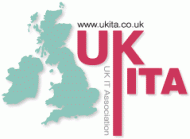Making IT Greener in the Workplace
UK businesses are under increasing pressure from the Government and consumers to reduce their carbon footprint and waste, leading to a much needed shake-up of their environmental conduct. The IT (Information Technology) sector has been blamed for a high percentage of business waste (quicker, cheaper technology, means an increase in productivity and therefore more waste) but now it is playing a vital role in helping to educate companies towards a greener future.
Midlands based IT Consultancy ‘ACUTEC’, has issued guidelines to assist companies in reducing their carbon footprint, as Managing Director, Chris Roche, explains:
Green Machines & Power Management
To stay competitive, every company must find an economical way to simplify and efficiently manage evolving technology requirements. Small businesses, in particular, are under pressure to do more with less space, fewer IT resources and tighter budgets.
Investing in newer technology will almost certainly be offset by lower maintenance and running costs during the operational life of a contract. For instance PCs with an Energy Star rating, can require 85% less energy to run them. You can also reduce energy by choosing PC monitors with flat screens, rather than Cathode Ray Technology – CRT - monitors are less environmentally friendly to run and dispose of.
User-friendly IT systems are now in place which help to control the amount of energy you are using. For example, many computers come with power-saving capabilities built into them such as the “sleep” and “hibernate” modes. When these capabilities are utilised during periods of inactivity, it reduces the overall amount of energy consumed by up to 60%. Power management systems place your monitor, hard drives and computer into a low-power “sleep” mode after a period of inactivity. A simple touch of the mouse or keyboard “wakes” the device in seconds. Power management features are standard in Windows and Macintosh operating systems.
Reducing the power consumption of PCs and servers has secondary benefits throughout an organisation and the larger community. It reduces electrical and air-conditioning loads in office buildings, data centres and homes, thus reducing the strain on regional generation facilities and the electricity grid. Last but certainly not least, it reduces emissions of greenhouse gases and other pollutants.
Green Thinking
Once new systems are in place it is imperative to educate each and every employee, for cost effective results. For example, did you know the average desktop PC wastes nearly half the power delivered to it? This wasted electricity translates to higher energy bills and unnecessary greenhouse gas emissions.
According to a recent article in Greener Computing News business computers are only used for an average of four hours a day! This means for at least four hours in a typical business day they are wasting energy. Also, a further 65% of energy is wasted just because computers are not switched off at the end of the working day.
A few tips from www.climatesaverscomputing.org give some of the basic principles in reducing energy:
• Limit screen-saver use: a screen saver does not save energy. In fact, more often than not, a screen saver not only will draw power for the monitor, but also will keep the CPU from shutting down. Instead, set your computer to turn off the monitor first, then go into standby mode after a longer period of inactivity.
• Some websites or pages that have active banners and or animated advertisements will not allow the computer to sleep on its own and must be closed, or the computer put manually into a sleep state.
• To maximize the battery life of your laptop commuter, consider setting even more aggressive monitor, hard drive and standby/sleep settings for battery mode.
• To further reduce power consumption, turn off computing and peripheral devices that are not being used for an extended period of time such as overnight.
• Plug all your electronics into one surge protector, so you can easily switch them all off when you leave the room. Most power supplies continue to draw power and generate heat even when not attached to a device.
Green Disposals
Computers are built for today, not for a lifetime. A computer over five years old is considered to be practically worthless these days. So what becomes of the old grey box once the ‘latest’ technology is installed at your desk?
Never be tempted to dump old PC’s in a skip. They contain a number of harmful materials and potentially dangerous components, such as the CRT in the monitor which can implode if handled carelessly.
While there are traders who are willing to pay a minimal amount for ‘parts’, the ‘greenest’ way of disposing of a number of PC’s or peripherals, is to find a company who can offer a free, safe and secure disposal service. There are an abundance of companies who specialise in recovering and recycling IT hardware, with many offering:
- free collection service
- tax-deductible receipts for all hardware purchased or donated
- ‘Data Integrity / Protection Guarantee’
- recycling services for metal and plastic and glass
- re-usable hardware is assembled into working systems for redistribution to schools & non-profit community projects
There are also a number of charitable organisations who specialise in refurbishing and recycling PCs which they distribute within the UK or send overseas. IT For Charities website (www.itforcharities.co.uk/pcs.htm) has a full list of companies willing to take your cast-offs.
Based in Coleshill, Acutec prides itself on making a difference to every customer, providing bespoke IT services within a 24/7 timeframe. The company also has a dedicated team of highly skilled programmers, writing innovative software systems. Log onto www.acutec.co.uk for more information.


